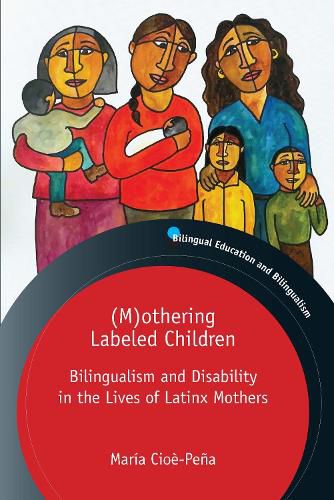Readings Newsletter
Become a Readings Member to make your shopping experience even easier.
Sign in or sign up for free!
You’re not far away from qualifying for FREE standard shipping within Australia
You’ve qualified for FREE standard shipping within Australia
The cart is loading…






This book takes a distinctive approach to exploring the experiences and identities of minoritized Latinx mothers who are raising a child who is labeled as both an emergent bilingual and dis/abled. It showcases relationships between families and schools and reveals the myriad of ways in which school-based decisions regarding disability, language and academic placement impact family dynamics. Treating the mothers as experts, this book uses testimonios to explore not only what mothers know but also how they develop funds of knowledge and how they apply them to their child’s education. The stories shed light on how mothers perceive their child’s disability, how they engage with their child and the value they place on bilingualism. The narratives reveal the complex lives mothers lead and the ways in which they strive to meet the academic and socioemotional needs of their children, regardless of the financial, physical and emotional costs to them. This book has significant implications for researchers and professionals working in bilingual education, special education, inclusive education and disability studies in education.
$9.00 standard shipping within Australia
FREE standard shipping within Australia for orders over $100.00
Express & International shipping calculated at checkout
This book takes a distinctive approach to exploring the experiences and identities of minoritized Latinx mothers who are raising a child who is labeled as both an emergent bilingual and dis/abled. It showcases relationships between families and schools and reveals the myriad of ways in which school-based decisions regarding disability, language and academic placement impact family dynamics. Treating the mothers as experts, this book uses testimonios to explore not only what mothers know but also how they develop funds of knowledge and how they apply them to their child’s education. The stories shed light on how mothers perceive their child’s disability, how they engage with their child and the value they place on bilingualism. The narratives reveal the complex lives mothers lead and the ways in which they strive to meet the academic and socioemotional needs of their children, regardless of the financial, physical and emotional costs to them. This book has significant implications for researchers and professionals working in bilingual education, special education, inclusive education and disability studies in education.